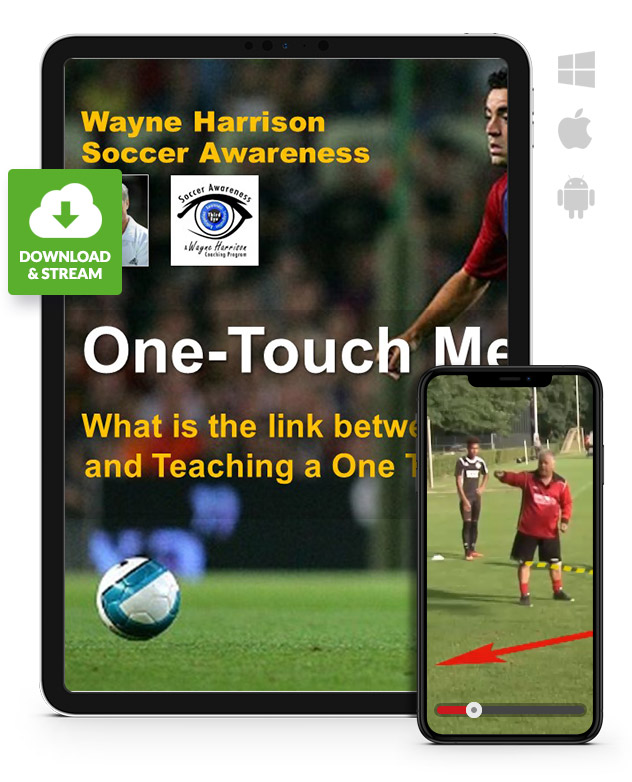One-Touch Mentality (Download)
Product number: 420096
Product information "One-Touch Mentality (Download)"
Author and Presenter: Wayne Harrison
Direction and Production: Peter Schreiner
Language: English
Theory Lenght: 33 Min.
Field session Lenght: 23 Min.
Soccer Awareness - One-Touch Mentality (Theory and Field session)
- The game is getting faster using fewer touches on the ball, which creates the need for quicker thinking; more intelligent movement off the ball; and better decision making players
- Soccer is a thinking game that begins in the head of each player. What is the link between the thinking process and teaching “A One Touch Mentality” to players?
- My main focus in training is the decision making process each player goes through to be successful. Important Questions: WHEN / WHERE / HOW / WHAT AND WHY.
- How often do you see the ball arriving at the players’ feet and he or she doesn’t know what to do next? You can almost hear their brains ticking over.
- The relevance of a learning a “One Touch Mentality” to the modern game.
- As the game gets faster, so is the need for players to master this VITAL innate ability because the game is getting faster using fewer touches on the ball, less space to work in as defensive tactics improve; which creates the need for quicker thinking; quicker moving; and better / faster decision making players.
There are three types of youth soccer player:
- Those who don’t know what’s happening in a game;
- Those who know what’s happening but only as its happening.
- Those who already know what is going to happen next.
In his online seminar Wayne Harrison talks about:
- The relevance of a learning a One Touch Mentality to the modern game
- The Decision Making Process
- The Skill Factor - When? Where? How? What and Why?
- Continuums “Look and Think” Model of Development
- One Touch thinking and “Movement OFF the ball” - How do they relate?
- How can you implement One Touch Mentality into your Warm-Up
In his field session he shows:
- Awareness Rubber Neck Training with 5 Players
- Non-Competitive Numbers game: Passing in sequence
- Peripheral Vision Development
| Altersklasse: | U7 - U10, U11 - U14, U15 - U19 |
|---|---|
| Autor: | Wayne Harrison |

